Economic Heresy: Herman Daly (#113)
Robust economic growth has become the Holy Grail of public policy and politics. But some economists and many scientists have come to believe growth has become “uneconomic.” Former World Bank Senior Economist Herman Daly explains this in terms we can all understand.
The economy is a sub-system of a larger system. The larger system being the biosphere, the environment. The biosphere is finite, non-growing, materially closed. We get a flow of solar energy coming in, but it’s not growing, either. So, how can the sub-system just continuously grow and grow and grow?”
Daly co-founded the journal, Ecological Economics, and has written and spoken extensively about uneconomic growth, limits to growth, and steady state economics.
In this newly released 2010 interview, Herman Daly postulates that, in a full world, the costs of further economic growth exceed the benefits, and we are reaching a point where it is physically impossible to keep growing the global economy.
It’s politically impossible to control growth, and it’s bio-physically impossible to keep on growing, so, we’ve got a real dilemma. Do you try to do what’s physically impossible, or do you try to do what’s politically impossible? I’d rather take my chances with the politically impossible….”
Using easy to understand, real-world examples, Daly delivers an aha moment. After listening to this interview, one is likely to conclude, “Of course! It’s the environment, stupid!” Herman Daly writes frequently for The Daly News (named in his honor), published by the Center for the Advancement of the Steady State Economy.
This is the 13th in our series of podcasts and radio programs. We post a new podcast episode every Thursday. Be sure to subscribe! You can find us at iTunes, SoundCloud and Stitcher, or sign up to get an email every Thursday with the newest episode. If you like what you hear, please support this project with a tax-deductible donation. Your comments are invited below. Are you witnessing the negatives of uneconomic growth in your nation, region or community?
More About Herman Daly:
After serving as Senior Economist in the Environment Department of the World Bank (1988 to 1994), Daly became professor in the School of Public Policy at the University of Maryland. He is a recipient of the Honorary Right Livelihood Award (Sweden’s alternative to the Nobel Prize), the Heineken Prize for Environmental Science from the Royal Netherlands Academy of Arts and Sciences, the Sophie Prize (Norway) and the Blue Planet Prize of the Asahi. He has authored numerous books, including:
Valuing the Earth (editor, with Kenneth Townsend)
Ecological Economics (with Joshua Farley)
Beyond Growth
Ecological Economics and the Ecology of Economics
Steady-State Economics
Toward a Steady State Economy
For the Common Good (with John B. Cobb, Jr.)






Economics is the study of the allocation of scarce resources to produce goods and services that are used to maximize human satisfaction in the face of unlimited human wants.
At least, that’s what John E. Sayre and Alan J. Morris say in the 3rd edition of their book, “Principles of Macroeconomics”.
The economists assumption of “unlimited human wants” is crazy. We are creatures of evolution — there is a limit to what our type of animal can comfortably consume. Beyond that, we do ourselves harm.
So your garden-variety economist must to massage the circumstances to fit the false premises of economics. That is why they are so intent upon forcing population growth!
Glad you’re listening, Brian. Though you already know all this. Hope you’re sharing it, and asking your local stations to carry it.
Isn’t part of our problem that we may, indeed, have “unlimited human wants?” Yes, that’s crazy.
We’ll be exploring just how crazy we are in the next, fascinating episode of Conversation Earth, with a behavioral economist (gotta love these guys)!
Hi Dave, I’m sorry to say that I’m snowed down with work that other people want me to do… so I’ve been less than interesting, lately.
If there is any individual of our species who has unlimited wants then I would say that this is because of:
(1) The rare circumstance of a genetic disease
(2) The more common case of culturally-induced delusion
We might also think of “wants” in the same sense that “ones eyes may be bigger than ones belly”: achievable vs imaginary. The want may be infinite but the practicable application of that want is always very much limited. This is why ultra-rich people do vanity spending — simply because the material result of spending so much money on one of their substantive consumption needs would actually be burdensome to them! Indeed, $50,000 for a vanity bottle of booze will meet the need of massaging their over-stuffed ego without the certainty of alcohol poisoning were they to consume so many dollars worth of the real stuff.
Let me give you an interesting case study. Some years ago Bill Gates decided to give much of his wealth away. Being who he is, he put a good deal of effort into making sure he did this in a way that was going to achieve what (for him) seemed like good outcomes. Since that time, the wealth of Mr Gates has increased. Even the act of giving it away is too burdensome for him to actually achieve his “want”
Correction: Herman Daly served as Senior Economist in the Environment Department of the World Bank from 1988-1994 (not 1998-1994).